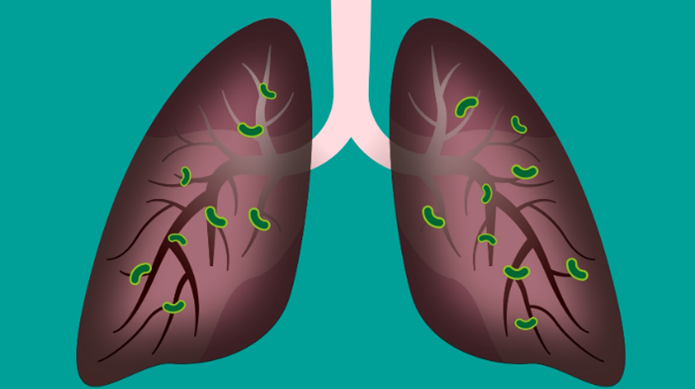
A new animation that aims to encourage people receiving treatment for TB to stop smoking has been created with expert input from LSTM researchers.
Launched on World Lung Day, the animation is a collaboration between LSTM, several teams at the Liverpool University Hospitals NHS Foundation Trust (LUHFT), Cheshire and Merseyside Cancer Alliance and City Health Care Partnership.
It aims to improve access to and uptake of smoking cessation services among people receiving TB treatment, to improve lung health of people with TB.
Smoking cessation will reduce the harmful impact of smoking and improve outcomes from TB, a condition which can also lead to chronic lung disease.
The UK Health Security Agency’s latest data for 2024 showed a 13% rise in reported TB in England, which emphasises the need for effective local services to support people accessing treatment for the disease.
Dr Naomi Walker, Senior Clinical Lecturer at LSTM and Consultant in Infectious Diseases and General Medicine at LUHFT, said: “Tuberculosis is treatable with a combination of antibiotics but increasingly it is recognised that the condition can cause long term respiratory problems, which may include cough and susceptibility to recurrent infections. Smoking cessation is an important step in protecting the lungs for the future and ensuring the best possible recovery from TB.”
The project builds on work which highlighted challenges for people to access smoking cessation support. The animation aims to provide clear, relevant and accessible information for people with TB, and recognising that services may be harder to access for people who speak languages other than English, is available in French, Arabic, Tigrinya and Polish.
The animation will be accompanied by posters and fliers, for distribution in NHS clinics and the local community.
Nicola Cartwright, City Health Care Partnership Programme Lead for stop smoking services in Liverpool, Knowsley and St Helens, said: “We know that people are four times more likely to quit when they seek help from a stop smoking service. It’s completely free and we can tailor support to suit, including providing interpreters where needed. Stopping smoking is one of the best ways people can look after their health and finances, so we need to make services like ours as accessible as possible.”